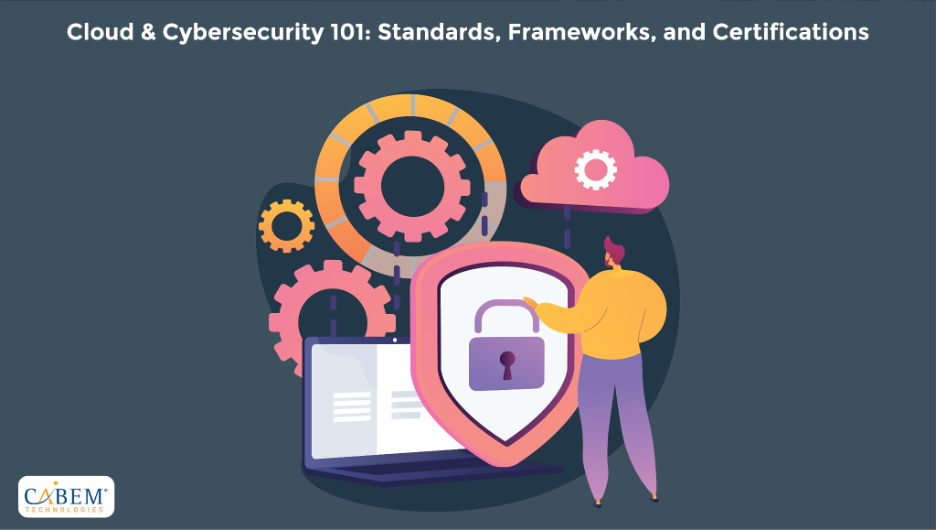Cloud computing has changed the way businesses work in this digital age. It offers flexibility, scaling, and, most importantly, cost optimization. As organizations grow, cybersecurity has become a major issue.
Cloud and cybersecurity are part of what makes successful cloud security. Without meeting them, your company cannot guarantee it protects sensitive data as required by industry regulators.
CABEM Technologies specializes in custom software solutions, cloud adoption, and cybersecurity services customized to fit their clients’ specific needs.
In this article, we explore the importance of cloud and cybersecurity by 2024, what to think about before implementing your cloud security frameworks, and relevant standards & certifications you should know.
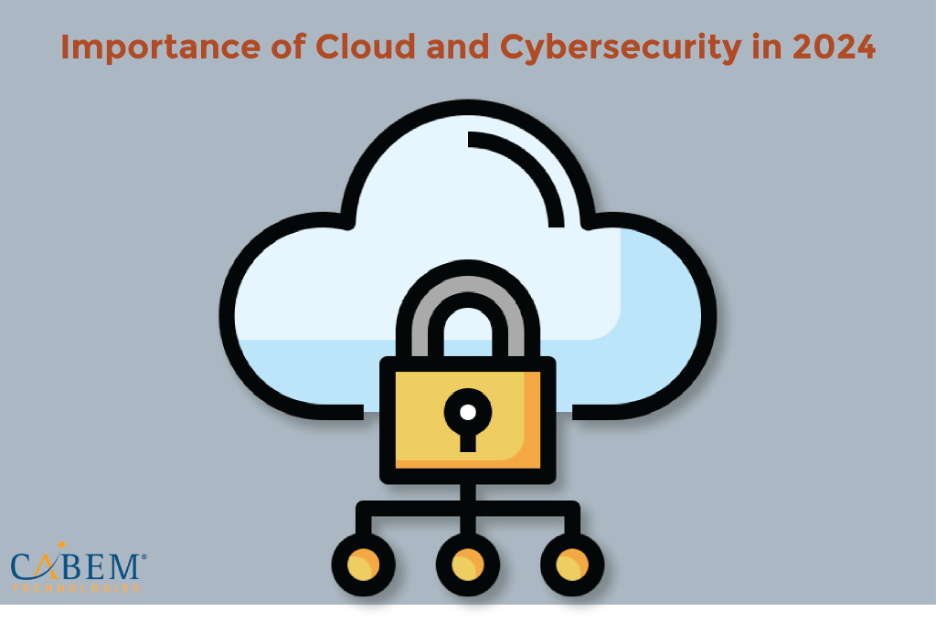
Importance of Cloud and Cybersecurity in 2024
Cloud security is on the rise in many industries, such as healthcare, manufacturing, and financial services. Organizations are using cloud-based infrastructure more than ever to store and process large amounts of data.
With this availability comes the burden of protecting these environments from threats, breaches, and data loss. Cybercriminals often evolve with the market and thus exploit the weak points of the cloud system. In this situation, cyber security processes and policies protect the organization from such threats.
CABEM Technologies is helping businesses adopt appropriate measures for Cloud and Cybersecurity applicable to their operations for the foreseeable period in a fast digital environment.
- According to recent data, the cloud computing market is projected to increase to 3240.60 billion dollars between 2022 and 2027. It is growing from 480.04 billion dollars in 2022, at a compound annual growth rate (CAGR) of 21.9% (MarketsandMarkets)
- A survey shows that in 2022, more than 80 % of organizations have suffered from a security breach related to the cloud. This proves to be one of the most effective and preferred ways for cybercriminals to attack organizations (IDC)
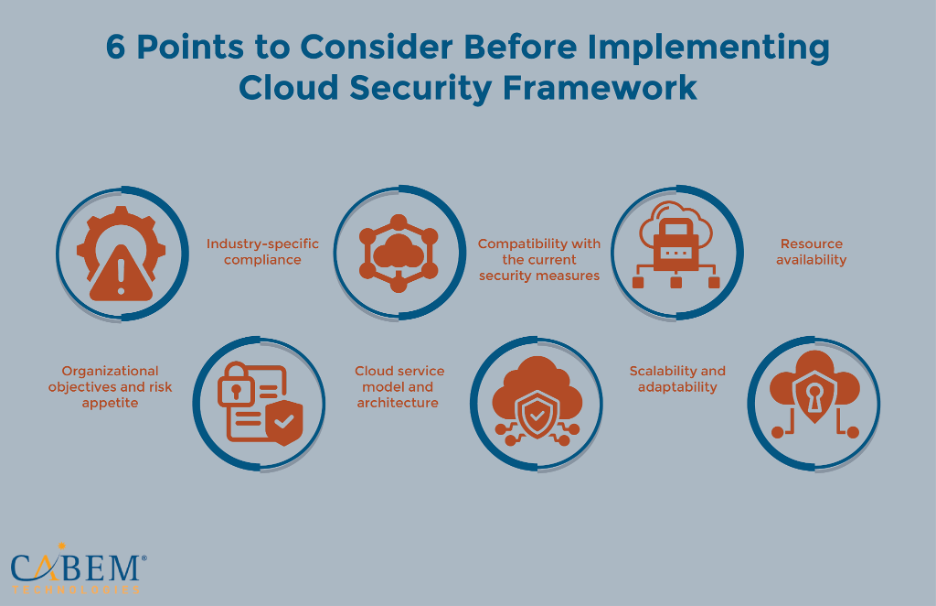
6 Points to Consider Before Implementing Cloud Security Framework
Due to the complexity of cloud security, organizations must consider a few factors to decide which framework is most suitable for their goals. Implementing cloud security without these considerations is likely to be inefficient, if not dangerously insecure.
1. Organizational objectives and risk appetite
Each business has its own goals and an individual risk appetite. Any cloud security framework will have to work within these parameters to be effective and not interfere with business operations.
- Define clear organizational goals.
- Assess the level of acceptable risk.
- Align security measures with business priorities.
2. Industry-specific compliance
Some sectors and industries, such as healthcare and finance, have rules they must adhere to. Selecting a cloud security framework that does not contradict these regulations is necessary.
- Comply with: HIPAA, PCI DSS and other relevant industry legislation.
- Ensure compliance with applicable international or national regulations.
- Perform regular auditing of the compliance standards.
3. Cloud service model and architecture
Various cloud models (IaaS, PaaS, SaaS) have their own security frameworks. Understanding the structure of the cloud setup is very important for developing the relevant controls.
- Evaluate the architecture of the cloud service.
- Understand the division of security responsibilities between providers and clients.
- Ensure security protocols cover all components of the cloud infrastructure.
4. Compatibility with the current security measures
Any new cloud security framework must seamlessly integrate with existing security measures to avoid redundancies or conflicts.
- Assess current security policies.
- Identify areas for integration.
- Adapt new frameworks to enhance existing security protocols.
5. Scalability and adaptability
As organizations grow, their cloud environments evolve. The security framework must be scalable and adaptable to future business needs.
- Select a framework that is relevant to the growth rate of the company.
- Structure up in such a way that there is high room for technology changes.
6. Resource availability
Implementing a cloud security framework requires both financial and human resources. It’s important to evaluate the costs and personnel involved.
- Assess the budget for cloud security.
- Ensure adequate staffing or external support for implementation.
- Plan for ongoing maintenance and updates.
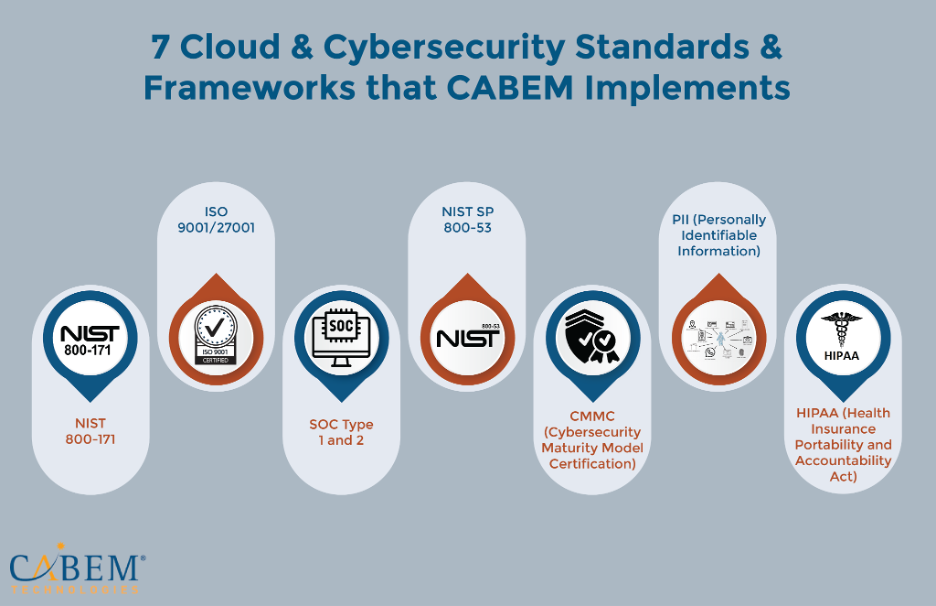
7 Cloud & Cybersecurity Standards & Frameworks that CABEM Implements
CABEM Technologies applies different industry-standard frameworks to implement cybersecurity solutions. These frameworks assist in safeguarding an organization’s proprietary information while adhering to industry policies.
1. NIST 800-171
The organization employs the National Institute of Standards and Technology (NIST) 800-171 to safeguard controlled unclassified information (CUI).
- Establishes 14 security families.
- Enhances protection for sensitive data.
- Meets government compliance requirements.
2. ISO 9001/27001
ISO 9001 deals solely with quality management, while ISO 27001 relates only to information security management.
- Ensures continuous improvement in quality and security.
- Provides a risk-based approach to managing information.
- Enhances data security protocols.
3. SOC Type 1 and 2
Service organization control (SOC) reports are critical in verifying security measures taken. Type 1 deals with how a system is designed, while type 2 deals with how effective operational procedures are.
- Validates security controls.
- Demonstrates compliance to clients.
- Enhances faith in the cloud service providers.
4. NIST SP 800-53
Another guideline under NIST SP 800-53 provides a comprehensive and detailed set of privacy and security-related controls.
- Provides secure cover for systems in different contexts.
- Delivers structured risk management.
- Fulfills the obligation of federal requirements.
5. CMMC (Cybersecurity Maturity Model Certification)
CMMC is a type of certification that facilitates the improvement of security for sensitive information in the supply chain for the US Department of Defense (DoD).
- It describes levels of cybersecurity maturity.
- Ensures security at all stages of development.
- Helps businesses achieve DoD compliance.
6. PII (Personally Identifiable Information)
Protecting PII is critical in safeguarding individual privacy, especially for firms that target sensitive personal information.
- Ensures data protection for individuals.
- Follows legal requirements for handling PII.
- Helps to avoid the threat of identity fraud.
7. HIPAA (Health Insurance Portability and Accountability Act)
The HIPAA policy formulates standards for protecting sensitive patient information in the health sector.
- Protects the privacy of healthcare information.
- Provides guidelines for securely handling patient records.
- Helps healthcare organizations avoid penalties.
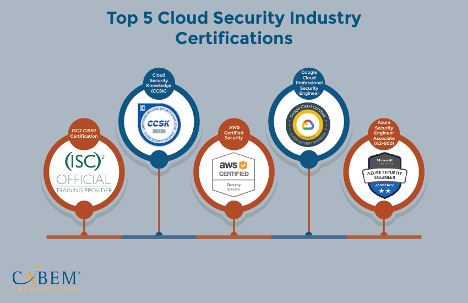
Top 5 Cloud Security Industry Certifications
Cloud certifications are a method of showing that an individual or a corporation has the ability to control and protect cloud operations and therefore bring important advantages to cybersecurity specialists.
1. ISC2 CISSP Certification
CISSP certification is more often required of information security specialists as an international measure of the quality of their work on information system security.
- Validates expertise in cybersecurity.
- Demonstrates knowledge across eight domains.
- Enhances career opportunities in cloud security.
2. Cloud Security Knowledge (CCSK)
Developed by the Cloud Security Alliance (CSA), CCSK certification is targeted at basic cloud protection concepts.
- Covers key security topics like data governance.
- Provides a solid foundation in cloud security principles.
- Recognized as an essential credential for cloud professionals.
3. AWS Certified Security
This certification process will focus on effectively managing security risks for Amazon Web Services (AWS) systems. This credential is well respected in the industry.
- Proves expertise in AWS security services.
- Ensures proficiency in cloud security best practices.
- Enhances knowledge of AWS infrastructure.
4. Google Cloud Professional Security Engineer
This certification is designed for professionals who secure Google Cloud environments.
- Verifies skills in managing Google Cloud security tools.
- Possesses skills in addressing security issues.
- Maintains security within hybrid and multi-cloud environments.
5. Azure Security Engineer Associate (AZ-500)
The Azure Security certification from Microsoft is one such exam that identifies the abilities of individuals in securing Azure infrastructures.
- Validates knowledge of Azure security services.
- Focuses on identity, access management, and data protection.
- Enhances proficiency in securing Azure-based solutions.
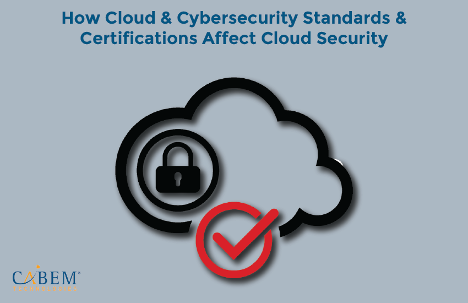
How Cloud & Cybersecurity Standards & Certifications Affect Cloud Security
Cloud and cybersecurity standards and certifications make the entire organization much more secure. These standards — such as NIST, ISO, SOC, etc. — help companies adhere to regulatory compliances and offer necessary instructions for interpreting the risks associated with security.
CISSP, AWS and CCSK are certifications that prove these skills to secure cloud environments and ensure organizations are staffed with the appropriate talent to apply best practices.
These standards and certifications combine to form a robust security framework that prevents threats, enhances data integrity, and increases customer confidence.
Research says companies implementing security frameworks are 60% less likely to have a major data breach (Ponemon Institute).
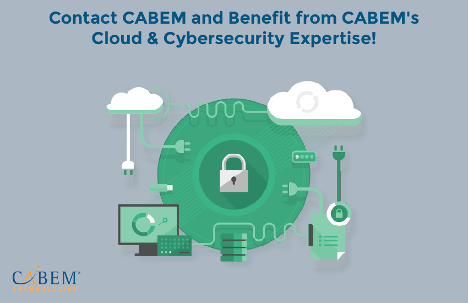
Contact CABEM and Benefit from CABEM’s Cloud & Cybersecurity Expertise!
Specializing in custom cloud and cybersecurity solutions for mid-to-large size businesses, CABEM Technologies stands unrivaled.
CABEM has years of experience in custom software development and adopting cloud-based solutions catering to multiple industries, ensuring your business remains compliant with industry regulations and safeguarded from growing risks.
Contact CABEM today and see how they can assist you in adopting correct cloud and cybersecurity frameworks in your organization.
FAQs
Is using cloud infrastructure risk-free?
No, while cloud infrastructure offers plenty of benefits, it is not free from risks like credentials leaks or data breaches, misconfigurations, and unauthorized access. You need to have a strong cloud security framework in place for this.
How does CABEM’s cybersecurity work?
With its proactive cybersecurity services – conducted through monitoring, risk analysis, and consistent security updates — CABEM can shield its client data and systems from breaches.
What are the steps to implement a cloud security framework?
The process includes:
- Defining objectives and compliance needs.
- Selecting the right security framework.
- Integrating it with existing policies.
- Ensuring scalability and continuous monitoring.
What are the differences between ISO 9001 and ISO 27001?
While ISO 9001 is designed to improve operational efficiency through quality management, ISO 27001 is aimed at protecting information security and its sensitive data from all possible threats.

